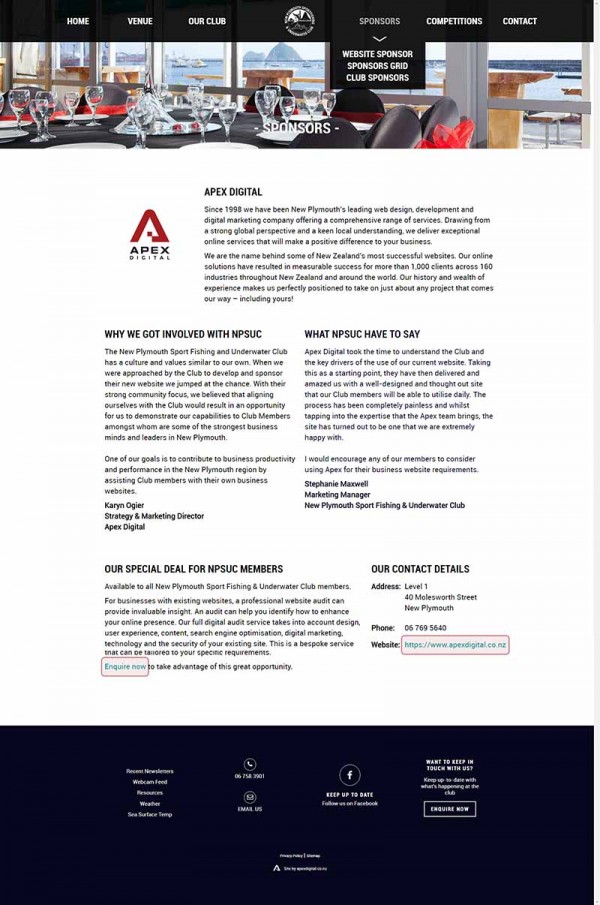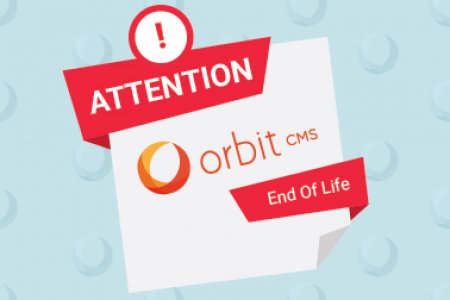We aim to respond to all messages within 1 business day. You'll be hearing from us soon!
In the meantime, perhaps you'd like to learn more...
Backlinks 101: What are backlinks and does your business need them?
Backlinking is an SEO strategy that digitally aware businesses leverage to help improve their online visibility in the Organic Search channel (i.e., Google searches). Having solid backlinks pointing at your website can improve your organic visibility and garner you more traffic. Sounds simple, but there are a few important caveats to consider before launching an all-out backlinking assault as part of your SEO strategy.
What are backlinks?
Put plainly, a backlink is a link from another website that points to a page on your website. E.g. Website A features a link from a page on their site to a page on Website B. Users browsing Website A’s site may see the link, click on it and land on Website B. This is a backlink to Website B. Taking this a step further, search engines use links such as these when evaluating the quality of website B. All other things being equal, the better the backlink, the better the quality of the site in the eyes of a search engine.
An example of a backlink are the links highlighted in red below. It points at the Apex Digital website, and appears on the New Plymouth Sportfishing & Underwater Club website, which we partner with. In this case, we are fortunate enough to have two backlinks featured on the page showcasing our services and our partnership with the club — the ‘Enquire now’ link in the special deal section, and the ‘Website: https://www.apexdigital.co.nz’ link in the contact details section.

How can backlinks benefit your business?
The quality of a website’s backlink profile is one of the (over 200) signals Google’s algorithms inspect when determining whether or not that website should feature on the search engine results page (SERP) for a relevant search query.
That in mind, say your website is competing with another for a search query related to your area of expertise (in reality, you’re likely competing against thousands of other websites in your field). When deciding which website should be given a more prominent position on the SERP, the Google algorithms look at each website’s backlink profile — and all other things being equal, the website with the stronger backlink profile will be given the more coveted spot on the SERP.
What makes a good backlink?
This whole backlinking things sounds pretty good, right? You may be wondering why everyone isn’t giving their right arm to rack up backlinks. Truth be told it’s a bit more complex than we’ve made it sound thus far. For starters, backlinks are hard to acquire as there isn’t necessarily much in it for the third party website that’s linking to you. Also, be warned — not all backlinks are created equal in the eyes of Google (or your users), and having the wrong ones pointing at (or featured on) your website can potentially have a negative effect on your SEO game.
A good backlink is one from a relevant website with good ‘authority’. Think of a government organisation or a company that’s an industry or thought leader. Having one of these websites hosting a backlink to your website could be worth its weight in gold for your digital visibility.
Google also assesses how natural a link is, so backlinks on websites and webpages that feature content related to your products or services are preferable. An example would be a university including a backlink to a property management company on their page advising students about local accommodation options.
What types of backlinks should SMBs be chasing?
It’s not realistic that an SMB can just pick up the phone, call Prime Minister Jacinda Ardern on her direct line, casually chat about having a backlink to their website featured on a .govt.nz domain, and then sit back and watch the SEO juice flow as traffic to their site grows exponentially — if only it were that easy… “Gidday, Jax…!”
What’s more probable and beneficial for small to medium businesses is to look locally, within their own community, for Local Links to build up their backlink profile. Think about supporting your local community charities, sports teams, business hubs, etc. By providing sponsorship or partnership you can often negotiate a backlink, pointing at your website, to be featured on the organisation’s website — just like the aforementioned Apex Digital backlink on the New Plymouth Sportfishing & Underwater Club’s website.
This type of backlinking has fringe benefits for companies who serve their local community as it goes hand-in-hand with building recognition and kudos for your company amongst your target audience, and can help build B2C and B2B relationships (as mentioned in our Google-Proofing Your Business Marketing Strategy blog over on our sister company’s website.).
Seeking citations and listings in some of the better-quality local business directories online is another effective form of backlink profile building for SMBs to sink their teeth into.
Read more about the Local SEO services Apex Digital provide.
Read more about Local Links.
What makes a bad backlink?
In times gone past, websites would go to great lengths to buy backlinks to manipulate the Google algorithms dealing with backlink profiles, improving their visibility all the way. These were the days of easy link building when less honest SEOs played the system to improve website traffic for their clients.
Those days are long gone as Google wised up (as they so often do) to the link schemes being used to manipulate their algorithms and drive traffic to sites that weren’t necessarily the best search result for the user. In 2012, Google rolled out the Penguin algorithm update to remove websites endorsing these tactics from SERPs, and to reward high-quality websites that better serve the user.
In the years since the Penguin update, websites have been a lot more punctilious with their approach to giving out backlinks on their websites. They (and you) want to avoid having backlinks on low quality and spammy websites, pointing to your website and vice versa. These can be websites featuring a high volume of backlinks that Google will deem to be ‘paid’ backlinks, or a website from another industry with a questionable connection to yours (think adult websites). Another factor that creates an undesirable backlink is when the website backlinking to yours has additional backlinks to other, poor-quality websites, this will bring down Google’s estimation of your website by relation. Being seen by the Google to be affiliated with such sites can negatively impact your website’s presence on SERPs.
Learn more about bad backlinks here.
What should you do if a website asks you to backlink to them?
Our clients often ask us about requests they’ve received from a third party website to host a link to a blog or white paper they’ve published. These clients helpfully forward us the email they’ve received, and we take a look at the quality of the company and the backlink they are asking our client to place on their own website.
An example of a backlink request sent to one of our clients
Almost 100% of the time we recommend our client doesn’t include the backlink on their website. With the backlink going in this direction, the backlink is of next to no benefit for our client. We want our clients to have relevant backlinks pointing at their websites, not the other way around. Furthermore, it can be generalised that if the third party company is reaching out to our client, requesting the backlink, that their website isn’t one carrying much authority on the www and this may be why they are pulling out all the stops to build up their backlink profile (potentially to their detriment).
We encourage our clients to ask themselves — would we link to this content or website naturally if they hadn’t requested the backlink? If the answer is ‘no’, then delete the email and move swiftly on with your day.
We’re here to help you with your backlinks
If you’re unsure about the state of your backlink profile, or would like some further advice around which backlinks to chase and the right way to go about it, please don’t hesitate to get in touch with us for an informal chat.
Related posts
AWESOME! LET'S GET STARTED
TELL US HOW WE CAN HELP
We aim to respond to all messages within 1 business day. You'll be hearing from us soon!
In the meantime, perhaps you'd like to learn more...





